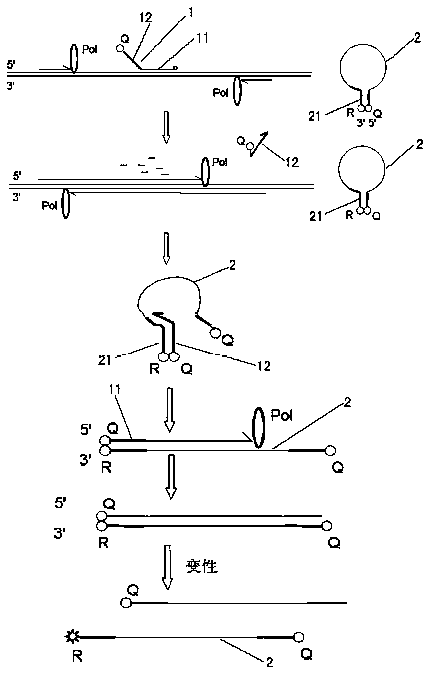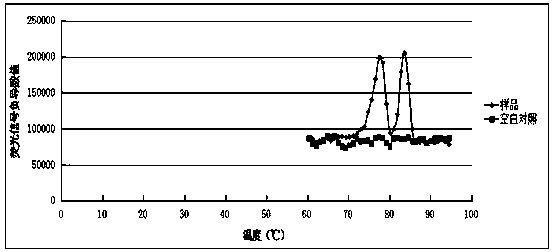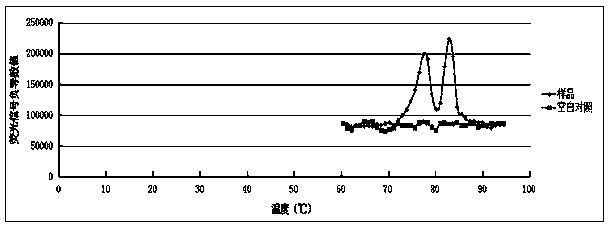A multi-color fluorescent melting curve PCR detection method
A melting curve and detection method technology, applied in the polymerase chain reaction (PCR) field, can solve the problems of limited fluorescence discrimination, dyes without specific sequence recognition ability, and limited multiple detection ability.
- Summary
- Abstract
- Description
- Claims
- Application Information
AI Technical Summary
Problems solved by technology
Method used
Image
Examples
Embodiment Construction
[0044] The present invention will be further described in conjunction with the following examples and accompanying drawings.
[0045] This embodiment illustrates the detection method of the present invention through multiple detection of the FemA gene of Staphylococcus aureus, the Hly gene of Listeria monocytogenes, the IpaH gene of Shigella and the InvA gene of Salmonella.
[0046] 1. Design of target gene-specific primer sequences and probe sequences:
[0047] 1) 从GeneBank中调出金黄色葡萄球菌常见株的FemA基因序列十三条:DQ352463,DQ352462,DQ352461,DQ352460,DQ352459,DQ352458,DQ352457,DQ352456,DQ352467,DQ352466,DQ352465,DQ352464,DQ352455,应用ClustalW软件 Perform sequence comparison, select a highly conserved segment as the target for primer design, then input the sequence into GeneBank, and perform BLAST comparison to determine that the sequence has low homology with other species genes except Staphylococcus aureus, and then Use ABI primer Express 3.0 software to design the primer sequence and probe sequ...
PUM
 Login to View More
Login to View More Abstract
Description
Claims
Application Information
 Login to View More
Login to View More - Generate Ideas
- Intellectual Property
- Life Sciences
- Materials
- Tech Scout
- Unparalleled Data Quality
- Higher Quality Content
- 60% Fewer Hallucinations
Browse by: Latest US Patents, China's latest patents, Technical Efficacy Thesaurus, Application Domain, Technology Topic, Popular Technical Reports.
© 2025 PatSnap. All rights reserved.Legal|Privacy policy|Modern Slavery Act Transparency Statement|Sitemap|About US| Contact US: help@patsnap.com



